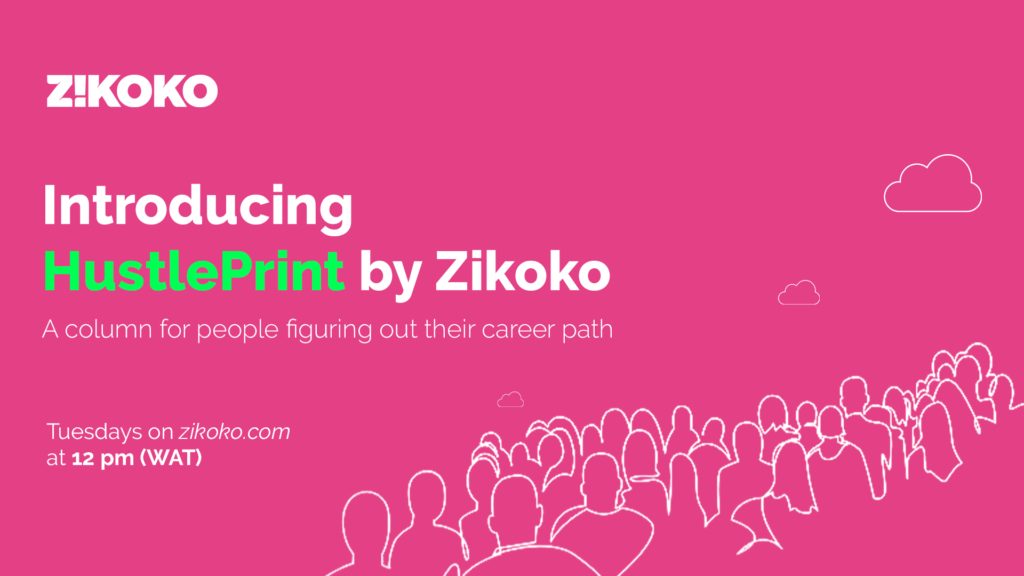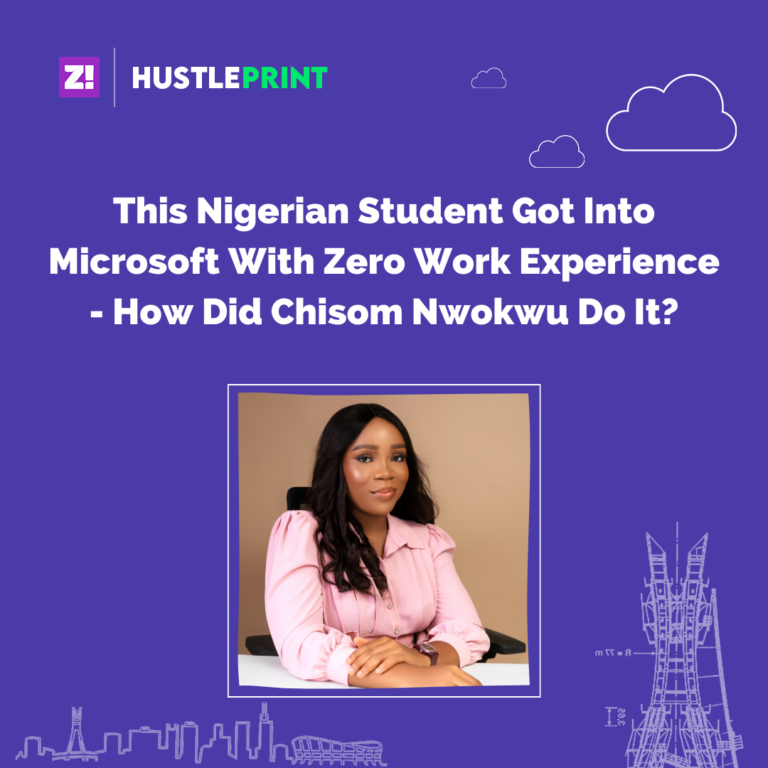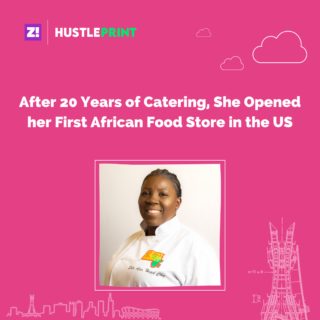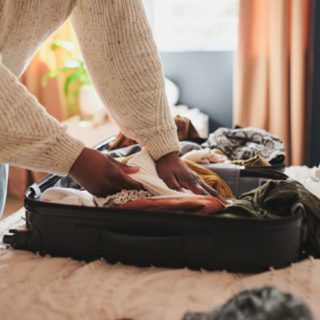Every week, Zikoko will share the hustle stories of Nigerians making it big in and out of the country. With each story, we’ll ask one crucial question in several ways: “How you do am?”
Jemima Osunde is a 26-year-old physiotherapist and actress. Fed up with the chaos of medical school, Jemima decided to pursue acting on the side. She called her big break pure luck, but through her story, we found out what it’s like to hustle as a newbie in Nollywood.
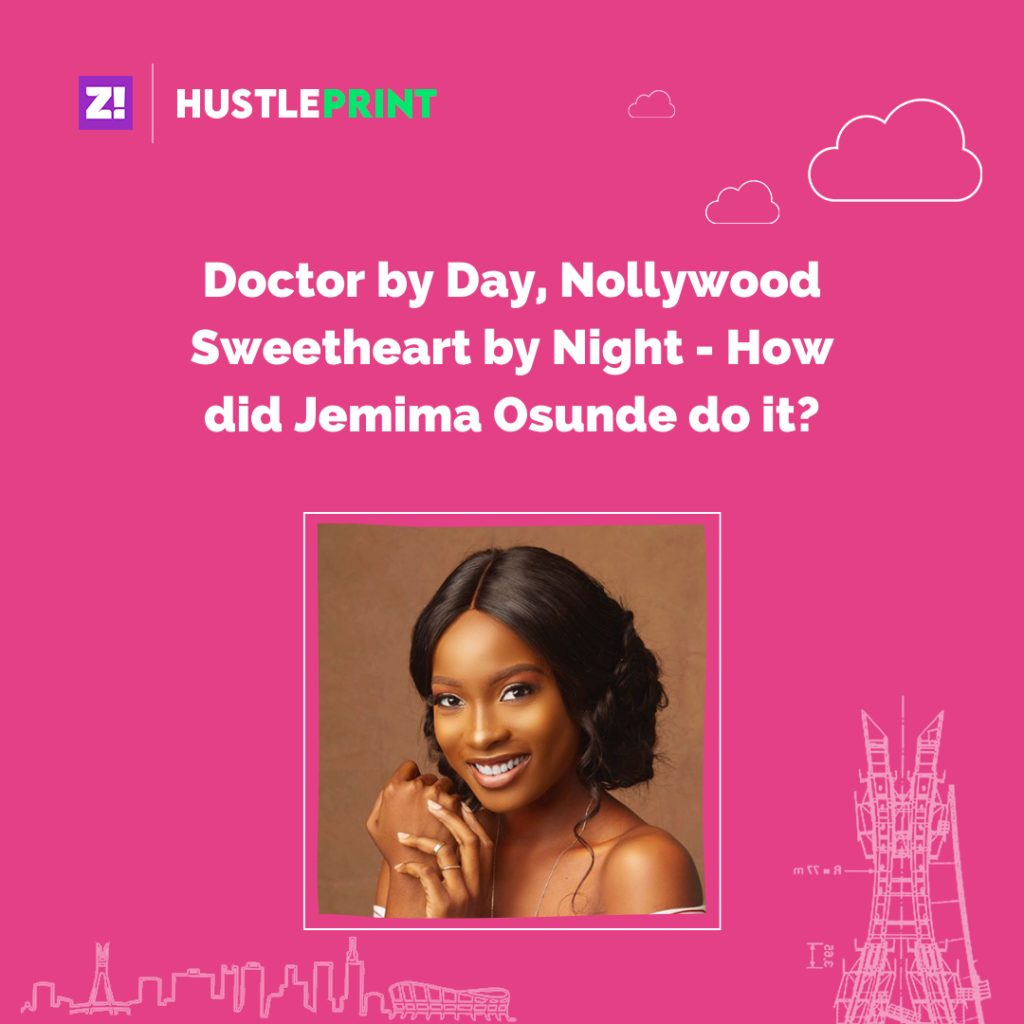
So Jemima, how did you do it?
I always tell people acting happened to me randomly. Physiotherapy was what I wanted to do. Things started in my first year at UNILAG in 2013. Post-JAMB messed up my grades, so I took a diploma program to get into 200 level the next year. Anyone who knows what UNILAG’s diploma is like knows it can be chaotic.
How chaotic was it, on a scale of 1-10?
Hmm. We’d be like 200 in one hall with no power. Lecturers would yell at the top of their lungs at the front of the hall, doing their best, but only the first 50 people could hear them. The rest of us were just there to sign attendance and fulfil all righteousness by being there.
So it broke the scale?
LOL. Yeah.
I did that for a few weeks and knew it couldn’t be my life for the rest of the year. That Christmas, I was at an uncle’s party, and we talked about how school was going. He suggested I consider acting since I was always talking everyone’s ear off. He felt it was a good way to make some money or just occupy my time.
What did you think?
It made sense actually. His words got stuck in my head for weeks. And after my next horrible day at school, I decided to experiment with acting while I was trying to get into the College of Medicine for my second year at UNILAG.
What was the first thing you did while experimenting?
I started following Nigerian production houses on social media and discovered that they usually posted open audition calls. It just made sense to me that to start acting I had to audition for roles, so I followed everyone from Africa Magic to EbonyLife. I followed producers too; from one producer’s page, I’d find another to follow.
Then, I followed young actors of that period. When I started, there was Olumide Oworu, Owumi Ugbeye who’d been on MTV Shuga — I just kept following everybody so I’d see every audition notice going out. Even though I didn’t immediately get roles, I learnt a lot from attending auditions and mingling with other aspiring actors who knew more than me. They’d give me the gist on what to do, what to look out for, who to meet and so on.
How did all of that play out in landing your first role?
I saw an audition notice for Tinsel in 2013. I didn’t get the part, but I got called back for Africa Magic Original Films [AMOF].
When I saw the email, I actually thought it was a scam because I hadn’t heard of AMOF or attended an audition for it. I had to call one of my uncles in the industry to verify. Then I had my mum come with me for the first few reads — till today, crew members at different sets still ask me about her.
I worked on five or six AMOFs. And through them, I got on The Johnsons, guest-starring in a few episodes as the character, Abby. These first few acting experiences were an exciting adventure for my mum and I. My parents used to drive me around to set locations.
What would you consider your big break into the acting industry?
MTV Shuga in 2014. I was 18 at the time so bagging my role as Leila on a show that big at the beginning of my career was significant for me.
How did that big break happen?
One of the actresses I followed at the start of my career and I were working on a film together. In passing, I said I really liked her character on MTV Shuga, and it’d be nice if it had a new character I could play. Like two days later, she texted about an audition and asked me to send my details to an email address. I did that, got a reply and went in for a reading. In a matter of three or four days, I was cast as Leila.
Just like that? Did you have any formal training as an actor?
No. Honestly, I was lucky.
That’s pretty much how things started for me. I only had to do three or four open auditions after Shuga.
Wait first. How was school going?
For some reason, most of my auditions were in Surulere, Lagos, so it wasn’t hard to go for them from the College of Medicine. Max, one bus, one okada, and I’d be at any casting.
It sounds like you were living a soft life
LOL. Not on the days I had to find my way to Ikeja or Lekki though. I’d get to Ojuelegba underbridge and be clueless. Or sit in a bus and wait for it to get full before my 10 a.m. call. That’s when I started to get frustrated. I had to beg my parents to drive me to auditions until I could afford to take Uber.
What’s the average amount of time you’d spend on set?
For movies, two weeks at most, and I’d be on set ten out of 14 days. We’d shoot until we stopped, which meant several hours of shooting per day.
Only Shuga took longer than a month to shoot. I was in one season each, on the Naija version and on Down South. I was on set every other day for three weeks for the first, and in Jo’burg for five to six weeks for the second.
How did things change after Shuga?
I kept grinding in between filming. I had a 9-to-5 as a researcher at One Music, and I was still a student at the College of Medicine. It was really hard to keep up. I was also just figuring out my life as a teenager, making friends — which didn’t quite work out because I don’t have many friends. Then I was always sending emails and DMs to every big director and producer I admired, even Shonda Rhimes!
But I got to a point where people would send me
I moved from needing to attend open auditions to being invited for table reads or screen tests. Instead of walking in with 500 people hoping to get a role, I scaled through to a more selected phase with maybe 20 people.
Were the chances of getting a role much higher in a table read or screen test?
Pretty much, but other upcoming actors get this access too. That makes it more competitive because you have to show what makes you special. Like why should it be Jemima and not the 20 other girls they know could play the character well too?
And did you have an answer to that?
For me, it was talking to the right people. People you work with mention your name in the right rooms.
Every time I got on set, I made sure I interacted with the crew members, not just the actors. There’s a vast amount of knowledge you can get from them because production typically uses the same crew. These people have gone from one project to another amassing experience. I always stress them out with questions about things like cameras and lenses. And that’s one way to get informal training.
RECOMMENDED: Creator Spotlight:“I Went to Enugu to Look for Pete Edochie”
What’s another?
Imagine being on a set with Kate Henshaw or Stella Damasus and not learning anything. I don’t have any shame in asking for help when I can’t connect with a character, for example. I remember meeting Adesua (Etomi-Wellington) on the set of MTV Shuga. We instantly clicked, and she’s been a strong support system ever since. She saw I was a young girl just trying to navigate the industry and could sense my silent cry for guidance, so she took me under her wing.
She was fairly new to Nollywood, but she’d been doing theatre and a bunch of creative projects in the UK. She’d ask things like, “What do you think should be a priority at the beginning of your career?” “What are you trying to do?” and just genuinely be a friend I can call anytime. It’s necessary to surround yourself with good people who’ll keep you grounded and remind you of your purpose even when you forget. That’s who she is to me. Our relationship has just evolved and metamorphosed into many different things over the years.
I don’t think I could’ve come this far without the older women in the industry TBH. They tell you what they went through in old Nollywood and ways to skip all the stress.
And younger actresses?
There’s a bunch of us that know we fall into the same criteria. If they’re not casting me then it’s Sharon Ooja, Tomike Alayande, Ini Dima-Okojie or maybe Efe Irele and a couple of others. It’s an unspoken thing, but we know ourselves. When a job comes, and one person isn’t available or interested, we refer each other.
How do you manage the competition since you all fall into the same category?
Being friends helps. My girls know how to stick together. And to make sure no one is getting the short end of the stick when jobs come. We know that for certain gigs within a certain duration, there’s a flat rate. No one goes below it. We basically set the standard for ourselves.
Beyond networking, what skills did you have to pick up fast as your career took off with MTV Shuga?
Omo, so many things. I didn’t get a representative until 2020, so I had to learn how to multitask on a large scale. Sometimes, I had classes from 8 a.m. to 1 p.m., with a call time at 2 p.m. and Lagos traffic to beat. So if I allocate one hour to something, and someone shows up 30 minutes late, that’s not my business. In my head, I have 30 minutes left. Till today, I’m still my own manager.
With the way things were going, why not just focus on acting?
In Nigeria, acting can’t be the only thing you do for income and fulfilment. How many good films do we make in a year compared to the number of actors we have? You can’t be busy from January to December.
Fair point
Yeah. Getting to MTV Shuga took a year. For me, it didn’t feel like such a long time because school kept me busy. If acting were all I had, that would’ve been difficult.
What happens when absolutely nothing works?
That happened to me during the pandemic. I had to find ways to keep myself busy. That’s why I started a music trivia game on Instagram. But I also tried to get roles on TV series so I could shoot weekly, like a monthly subscription to being an actress.
Let’s move to the medical side of things. Are you currently practising?
Not for the past two months. I finished my NYSC in the first quarter of 2022 and took a break. Medical work in Nigeria is the ghetto. If you know people in the medical field, check up on them. Na them need mental help pass.
LOL. What’s doing them?
It’s so much work for such little pay and zero recognition. I’m at the point where I want to do it voluntarily, pick a few hospitals I’ll work at on the days I’m not filming. But for now, I’m on a break.
I’m curious: how has being a health worker made you a better actress?
Outside handling financial stress, the toughest part of being a health worker is seeing people die every day. Somehow, that’s helped me get into character without being so attached to the trauma I play, since it’s all fiction. It’s much more difficult when you actually know the person in reality.
And how does it work the other way around?
I’ve never thought about that. I think acting makes me a lot more sensitive and empathetic. Treating someone is very different from being able to become that person in your head and possibly picture your life like that.
Best in acting
LOL. So even when I want to lose my cool with their family members — because patients are never really the issue — I can somehow put myself in their shoes. I guess that’s one of the ways being an actress helps my medical career.
How do you manage to keep both careers apart?
I don’t keep them apart o. My self-given nickname is “one true self”. I’m an acting physiotherapist, doctor-actress, health worker-entertainer, whatever version people prefer. I’m one person living the best of both worlds, that’s what makes me who I am. I’m currently doing a Master’s in Public Health, and people like to ask me what I need it for. I don’t have an answer for them. They should just watch and see.
And how do you handle people recognising you when you’re in hospital mode?
I actually prefer when people recognise me in the hospital than outside, on the streets, in the supermarket. It helps me cheer my patients up. It makes it easier to find a common ground with them, which is important in my line of health work. Apart from that, I’m a very public but private person. You’ll see me banter a lot on Twitter, or post random things when I’m in my lover girl stage, but I’m very deliberate with the details I share.
What’s a trick every newbie needs to learn in the film industry?
Characters become more challenging when you realise they’re not fictional. Anyone can read a script and have a flow. But sometimes, you have to create a backstory that helps you connect more with the character. That’s not something on a script. And that’s what some directors tell you to do, to actually become a character.
What were some roles that put you to the test?
There was Nkem, the sex worker I played in The Delivery Boy in 2018. But one of the toughest characters I’ve played is Ranti from Rumour Has It in 2016. The babe was mean and controversial. I couldn’t play her until I could come up with a reason why someone could deliberately publish horrible stuff about their friends on a blog. Though there’s no justifiable reason to hurt people, giving her a defendable backstory helped me embody her character better. And that process makes it easier to get into challenging roles.
I have to ask: what does it take to get to the level you’re at in the industry?
Quality over quantity of films you shoot. And that’s why you need an extra source of income. But the best advice I received as a newbie was, “Never be afraid to take multiple cuts.” Because even when you think it’s perfect, a scene can always be better.
How do you know when to stop then?
Sometimes, you just need to take multiple cuts to give the director different portrayal versions to choose from. You know when to stop by reading the room. People on set — the director, cinematographer, DOP — are very honest. If the cut is just there, it’d show on their faces. Or you could get a standing ovation because the take was just that good. You don’t have to wait for an ovation, but make sure everyone is satisfied before you stop. They’d even be the ones to reassure you that you don’t need another take.
